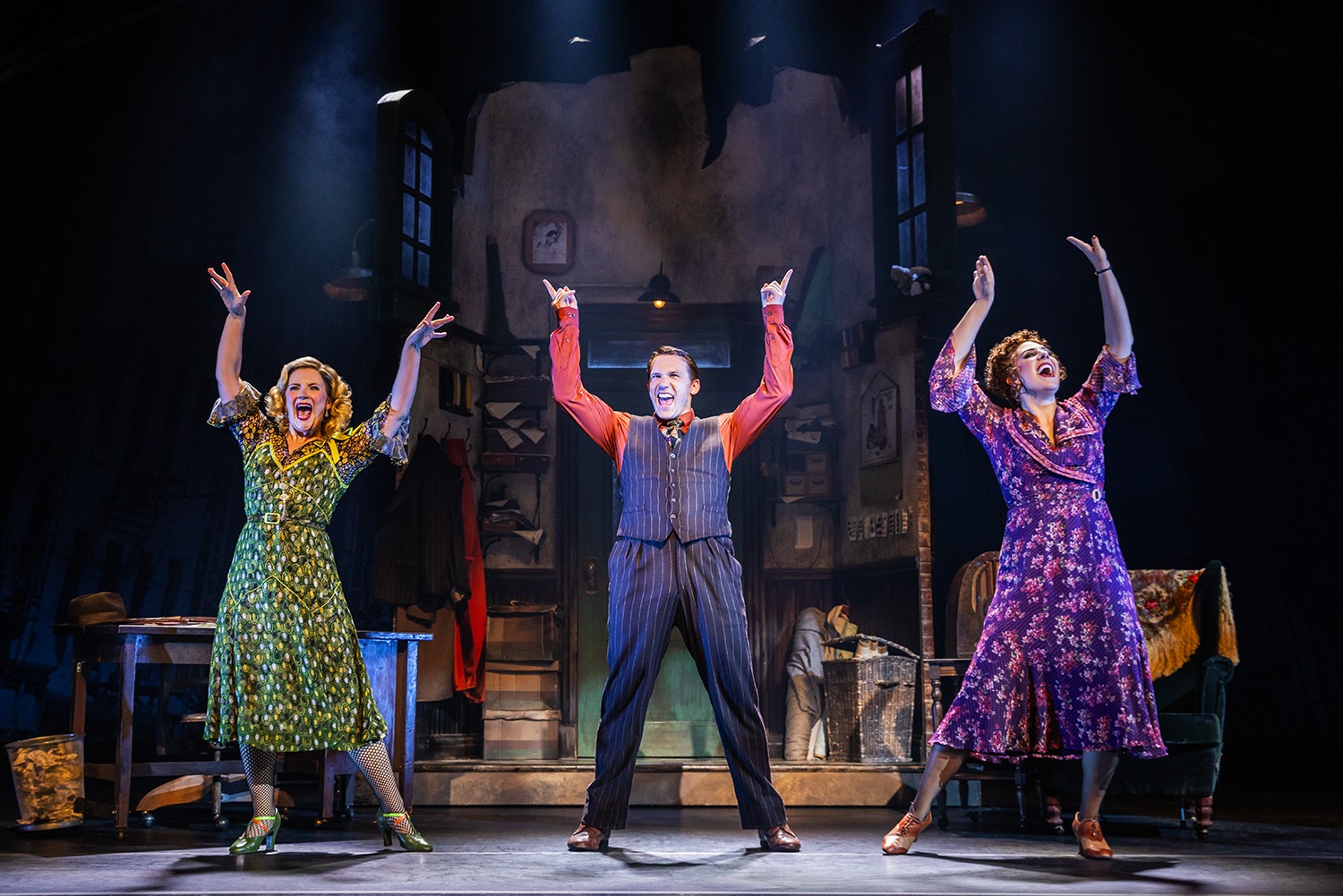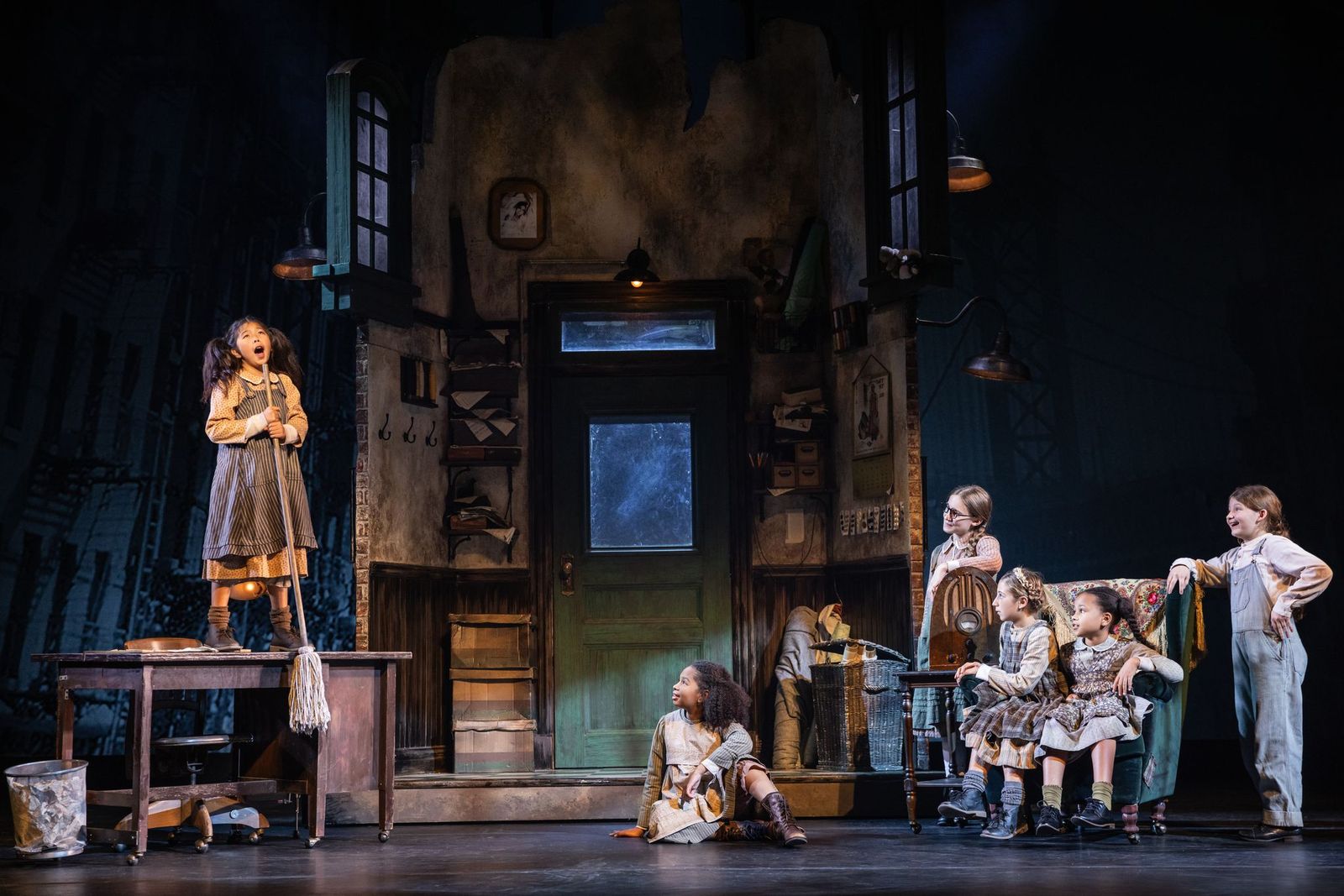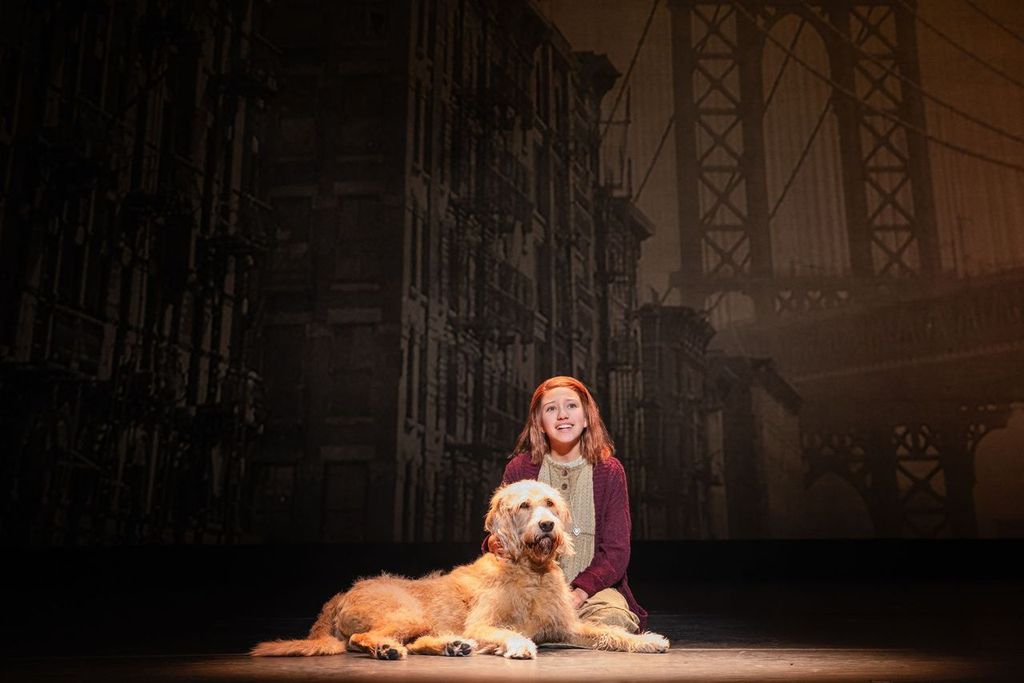SALT LAKE CITY — As a kid growing up in the 90s, reading Sunday comics in the Deseret News was something I always looked forward to, and a memory I continue to cherish. But long before the days of Garfield and Far Side, Little Orphan Annie captured the hearts of Americans. Premiering in 1924, the comic strip has inspired many adaptations, notably the 1977 Broadway musical, which is currently being staged at the Eccles Theatre by Broadway Across America.
The musical, with a book by Thomas Meehan, music by Charles Strouse and lyrics by Martin Charnin, takes place in New York City, December 1933. Abandoned by her parents and fast approaching adolescence, Annie pines for an escape from her awful orphanage with trademark optimism, until one day it comes in the form of billionaire do-gooder Oliver Warbucks, who takes her in — first, for the holidays…then (cue tears) forever.
Annie features some of the greatest songs in the American songbook, including the triumphant, hopeful “Tomorrow”, delightful “It’s the Hard Knock Life”, and lighthearted “You’re Never Fully Dressed Without a Smile”.
Rainier Treviño stars as the strong, confident and plucky heroine—an everlastingly positive girl with a strong, clear, pre-vibrato voice. The evil Miss Hannigan, surely one of the funnest roles in theatre, is played with gusto by Stefanie Londino, who brought fresh line readings to her sinister “Little Girls” with a desperate, off-key delivery. Equally impressive was Londino’s consistent physical performance; from the way she sat to the way she danced, every movement was apropos.

Christopher Swan struck just the right tone as Oliver Warbucks, a businessman who is a little icy at first before growing to love Annie. Julia Nicole Hunter stood out among the cast as Warbuck’s secretary Grace Farrell—a warm, likable presence with a strong singing voice and acting skills. Understudy Jerquintez A. Gipson’s performance as Hannigan’s henchman-brother Rooster, however, felt too gentle. While a fancy outfit and good looks might otherwise help create a convincing conman, this Rooster was far from menacing.
Sandy was played by underdoggy Kevin, a labradoodle who hit all his marks. The dog is directed from off-stage by trainer Charlotte Woertler, who sharp-eyed patrons can spot discretely appearing to handle the doggo for the big ending.
Costume and scenic design by Alejo Vietti and Wilson Chin respectively worked together wonderfully to define characters and establish the plot. The musical began with a palette of sickly green and blah beige, which was shattered by Grace’s entrance in her royal blue outfit (Warbuck’s vibrant green and gold estate later elevated and transformed the orphanage’s palette). Costume choices for Annie also defined her character arc with various shades of purple-blue (and ultimately red) costumes—which stood out thanks to understated colors in the rest of the cast. Hair and wig design by Ashley Rae Callahan ditched Annie’s traditional perm in favor of straight hair (still red, of course).

One of the greatest and most consistent pleasures of a Broadway Across America production is the chorus; and Annie’s was killer. The group, directed by Jennifer Christina (who also conducted the live 10-piece orchestra), displayed fabulous blend, impeccable diction and unified cut-offs—not to mention doing it in a variety of characters, from hobos to upper crust.
Lighting design, based on Philip S. Rosenberg’s original work, was a technical highlight. It cast shadows in all the right places; consider how the top of Hannigan’s lair lies in darkness, effectively showing the dreariness of the location; compared to the crisp, stately shadows cast by the pillars at Warbuck’s palace. The lighting also created a gorgeous effect on the classic New York City backdrop and made it look real.
It’s amazing that any young performer could do as well as Treviño after over 200 shows coast to coast. Treviño has a great voice, with just a couple moments of pitchiness in long phrases, and Annie’s pluck and strength came through in her performance. That said, I do think the character could benefit from more dynamics and expression, especially in singing. Additional training could empower the young actress to use a wider palette of expression and greater storytelling. Christina and director Jenn Thompson may wish to work with her to develop these dynamics.
While an undisputed classic with timeless music, Annie isn’t without its problems. After running away, the protagonist doesn’t really do anything or have much agency—the main conflict is solved off-stage by some random FBI agent. Plus, audiences are less likely to understand or relate to the New Deal in 2024, which makes the FDR b-plot unsatisfying (maybe the hobos need a second number, “You’re a great man, FDR!”).
Still, with strong adult performances, superb tech and fine singing, Broadway Across America delivers a professional production of Annie that will appeal to Utah audiences. Parents will leave reveling in Hannigan’s performance and relating to it more than they’d admit (she’s basically an overrun housewife after all), while kids will leave loving and relating to Annie. And the cycle of life continues.
[box]Broadway Across America’s production of Annie runs May 10-12, 2024 at the Eccles Theatre, 131 S. Main St. Salt Lake City. Tickets are $45-149. For more information, visit saltlakecity.broadway.com [/box]

